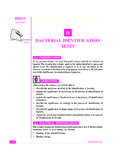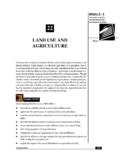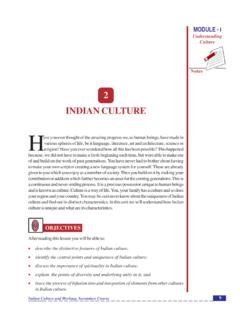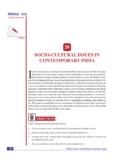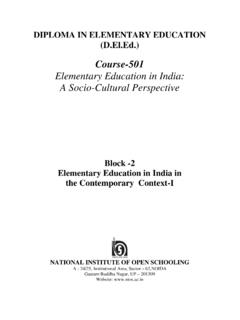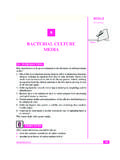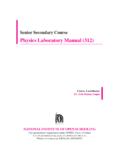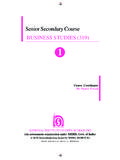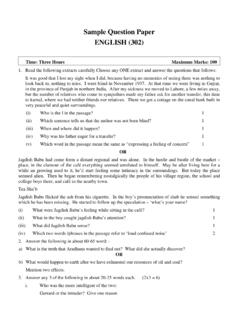Transcription of UNIT 1 SOCIETY AND EDUCATION - National Institute of …
1 SOCIETY and EDUCATION UNIT 1 SOCIETY AND EDUCATION . Notes Strucutre Introduction Learning Objectives SOCIETY : Meaning and its Institutions Evolution of Indian SOCIETY SOCIETY and EDUCATION Linkages School as an Organ of SOCIETY Let Us Sum Up Answer to Check Your Progress Suggested Readings & References Glossary/Abbreviation Unit-End Exercises INTRODUCTION. In this unit, you will learn what is SOCIETY ?, the nature of Indian SOCIETY and the network of relationship between individual and SOCIETY . It also delineates various institutions of SOCIETY like family, EDUCATION , religion, polity, economy . Through these institutions you will know the basic structure and its function in SOCIETY .
2 As the title of the unit is SOCIETY and EDUCATION , therefore, major focus directed to understand the relationship between SOCIETY and EDUCATION system. Educational institutions are very much part of SOCIETY and learning is social production. Hence, you will learn the major contributions of EDUCATION system to the development of SOCIETY or mankind. Contrary to this, the nature and development of educational institutions are also shaped by the norms and values of SOCIETY following its socio-cultural factors, economic milieu and political conditions context. LEARNING OBJECTIVES. After studying this unit you will be able to a) Define SOCIETY and discuss its constituent institutions, their relationships and functions.
3 Block 1 : SOCIETY , Community and School 1. SOCIETY and EDUCATION b) Describe the nature of Indian SOCIETY , its evolution and relationship with EDUCATION system. Notes c) Analyze the linkages between SOCIETY and EDUCATION . d) Discuss the role of schools as an organ of SOCIETY . SOCIETY : MEANING AND ITS INSTITUTIONS. SOCIETY is a web of relationship' and these relations are fundamental for understanding human behaviour and different institutions of SOCIETY . You must be aware about different forms of relations in your family, community and SOCIETY . Within the family, there are relations like mother, father, son, daughter, husband, wife, brother, sister which we put under primary relations whereas uncle, aunt, nephew, niece are called secondary relatives.
4 There are also tertiary relatives like friends, neighborhood relations and many other similar relations. These social relations can be understood with role and status in SOCIETY . Role is a set of actions of an individual. A teacher in school performs various actions pertaining to teaching, evaluation, group activity in the classroom situation and actions concerning school administration. Similarly, he/she also perform actions within family and other situations. Thus one individual performs multiple roles in everyday life. For instance- A person is playing roles of father for his children, son for his parents, husband for his wife, bother for his siblings, teacher for his students and other roles.
5 This shows that role is changing with changing social context and each role attached with certain position in SOCIETY called social status. Both role and status are regulated by certain norms and values of the SOCIETY . In other word, we can say that norms and values are collective conscience and unwritten constitution of any SOCIETY , largely known among members of SOCIETY as well as attached with sanctions (reward and punishment). Therefore, the understanding of social relations, role and status, norms and values are core concern of understanding of SOCIETY . The term SOCIETY is rooted in Latin word societas, means friend and ally. The terms used to describe a relation or interaction among group.
6 The concept of SOCIETY defined by a large number of thinkers-sociologists, social anthropologist and other social scientists. Among these definitions mostly follow two ways as basic unit in SOCIETY - first is social action' and another is interaction'. American sociologist MacIver and Page consider, SOCIETY as a system of usage and procedures, of authority and mutual aid, of many groupings and divisions, of controls of human behavior and of liberties . Hence, we can see SOCIETY as a large group of people who interact with each other, share the same culture, territory and way of life. Its usage is very wide and ranges from one small community 2 Diploma in Elementary EDUCATION ( ).
7 SOCIETY and EDUCATION (village) to world human SOCIETY , from primitive culture to post-modern culture which differs with time and place. However, the concept of community and SOCIETY are not same. SOCIETY is an abstract, broad and general concept whereas community Notes is constituent of SOCIETY and characterized with definite territory, close relationship called we feeling' and cultural similarity. Talcott Parsons, American sociologist, used term social system for SOCIETY and considered interaction' is the basic unit to explain the human behaviour. For him, every action is not social unless multiplicity of people involved in interaction.
8 Individual and SOCIETY Every individual is a member one SOCIETY or other SOCIETY . As a member of SOCIETY , you must be aware of different institutions of SOCIETY playing significant contribution towards continuity. To understand SOCIETY , social relationship and its dynamics, it is pertinent to know its basic constituent units social institutions and social processes. Social institution refers to a set of norms' applied to various aspects of human behavior regulated by well established, easily recognized and relatively stable norms for smooth functioning of SOCIETY and social relations. There are some important institutions like family, EDUCATION , religion, economy , polity which play different roles following the norms and values of one particular SOCIETY .
9 Now we will study these institutions in detail. 1. Family is the first school where children start their initial learning. The role of teacher played mother and other members of family. Even in the formal school system, different roles like teacher, pupil and parents are members of SOCIETY and always carry their cultural baggage and values of same SOCIETY . This common cultural baggage also led to common reference of learning and similar constructions. Throughout the ages the family has been a fundamental social institution at the core of the SOCIETY . Family is a basic unit of any community and SOCIETY which acts as joining institution between individual and SOCIETY .
10 It has almost universal existence across the world. It discharges many functions to SOCIETY and individual from regulating marital bond, legitimate reproduction, care for young, controls human behaviour and functioning as an economic unit at least for consumption. It discharges this role with other associated institutions, like marriage and kinship. Family exist almost all human SOCIETY , however, varies in terms of structure and function from SOCIETY to SOCIETY and time to time. 2. Religion: Religion is also one universal institution that exists from primitive to post-modern SOCIETY . French sociologist Emile Durkhiem defined religion as unified system of beliefs and practices related to sacred things.
